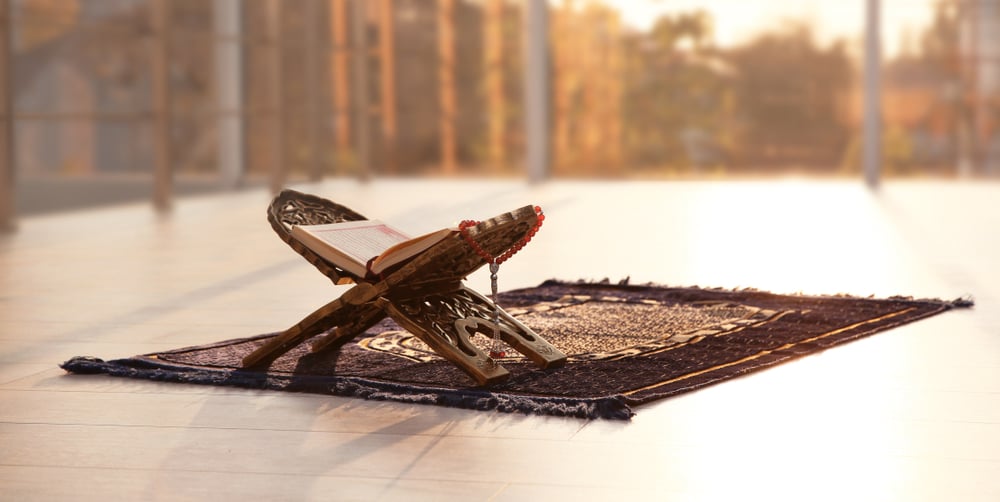The Ten Days of Dhu’l Hijja: Merits & Striving in Spiritual Works
Answered by Shaykh Faraz Rabbani
Question
Can you please mention some of the merits of Dhu’l Hijja and some acts of worship that can be done in the month?
Answer
In the Name of Allah, Most Merciful and Compassionate
The first ten days of Dhu’l Hijjah are blessed days: Allah Most High Himself swore by them in the Qur’an:
“By the Dawn,
and the Ten Nights…”
[Quran, 89:1-2]
The Quranic commentators generally agree that the ten nights mentioned above refer to the first ten days of Dhu’l Hijjah, as one may find in Shaykh al-Islam Abu Su‘ud’s Irshad al-‘Aql al-Salim ila Mazaya al-Qur’an al-Karim [famous as Tafsir Abi al-Su‘ud, 9.153] or in Tafsir al-Jalalayn.
It is reported from Sayyida Hafsa (Allah be pleased with her) that, “The Messenger of Allah (blessings and peace be upon him) did not leave four matters:
- Fasting ‘Ashura (f: 10th of Muharram),
- [fasting within the] the ten days [of Dhu’l Hijja],
- [fasting] three days of each month,
- and the two rak‘as before fajr prayer.” [Ahmad; Nasa’i]
1. Fasting the First Nine Days, Especially the Day of ‘Arafa (9th)
The scholars have concurred that it is recommended to fast during the first nine days of Dhu’l Hijja. Note, however, that the tenth day is the day of Eid, and is prohibitively disliked and sinful to fast this day. [Buhuti, Kashshaf al-Qina‘; Nawawi, al-Majmu‘; al-Fatawa al-Hindiyya; Haskafi, al-Durr al-Mukhtar; Dardir, al-Sharh al-Saghir]
Of these, it is particularly recommended to fast the Day of ‘Arafa (9th of Dhu’l Hijjah), even for the one on Hajj in the Hanafi school, if it does not weaken the pilgrim from spending the day busy in worship. [Haskafi, al-Durr al-Mukhtar; Kasani, Bada’i‘ al-Sana’i‘]
As for hadiths in which the Prophet (Allah bless him & give him peace) commanded against fasting this day for the pilgrim at ‘Arafa, this was understood by the Hanafi imams to refer to those whom it would weaken or tire. This was explained by Imam Tahawi. [Tahawi, Sharh Ma‘ani al-Athar, 2.82-83]
This is because of the numerous hadiths that have come in praise of this day in particular and fasting in it. Among these is:
Abu Qatada (Allah be pleased with him) related that the Messenger of Allah (blessings and peace be upon him, his family, and companions) said, “Fasting the Day of ‘Arafa (f: 9th of Dhu’l Hijjah) expiates for two years, one prior and one forthcoming. And fasting the Day of `Ashura (f: 10th of Muharram) expiates for the past year.” [Muslim, Abu Dawud, Nasa’i, and Ibn Majah]
2. Increasing One’s Spiritual Works During these Ten Days
Similarly, it is recommended to busy oneself these days with acts of worship. Imam Sharaf al-Din al-Hijjawi, the great Hanbali faqih, states in his primary text, al-Iqna`,:
“It is recommended to exert oneself in good works during the first ten days of Dhu’l Hijjah, such as remembrance of Allah (dhikr), fasting, charity, and other righteous actions because they are the best of days.” [Buhuti, Kashshaf al-Qina`, 2.60]
This is confirmed by scholars of all the Sunni madhhabs. [Ibn Nujaym, al-Bahr al-Ra’iq; Haskafi/Ibn ‘Abidin, Radd al-Muhtar ‘ala al-Durr al-Mukhtar; Nawawi, al-Majmu‘ and others]
Many scholars even stated that the daytimes of these ten days are more virtuous than the ten daytimes of the last ten days of Ramadan, because of the strength of the primary texts related to them.
3. Spending the Nights of These Days In Prayer and Worship
It is especially recommended to spend some part of each of the nights of these ten days in prayer and worship. [Nawawi, al-Majmu‘; Ibn Qudama, al-Mughni; Dardir, al-Sharh al-Saghir; Ibn Nujaym, al-Bahr al-Ra’iq; al-Fatawa al-Hindiyya; Ibn ‘Abidin/Haskafi, Radd al-Muhtar ‘ala al-Durr al-Mukhtar]
This was deduced by clear primary texts, such as Prophet’s words (Allah bless him and give him peace) that, “There are no days in which good works are more beloved to Allah than these days – meaning the first ten days of Dhu’l Hijjah.” The Companions asked, ‘Not even jihad in the path of Allah, O Messenger of Allah?’ He said (Allah bless him & give him peace), “Not even jihad in the path of Allah, except for the one who goes forth with his person and wealth and does not return with any of it.” [Bukhari and others]
May Allah give us success in these blessed days and nights, and in every moment of our lives, to follow the path of the Prophet (Allah bless him & give him peace), and may He make us of those whom He loves and who love Him.
Walaikum assalam,
[Shaykh] Faraz Rabbani
Shaykh Faraz Rabbani spent ten years studying with some of the leading scholars of recent times, first in Damascus, and then in Amman, Jordan. His teachers include the foremost theologian of recent times in Damascus, the late Shaykh Adib al-Kallas (may Allah have mercy on him), as well as his student Shaykh Hassan al-Hindi, one of the leading Hanafi fuqaha of the present age. He returned to Canada in 2007, where he founded SeekersGuidance in order to meet the urgent need to spread Islamic knowledge–both online and on the ground–in a reliable, relevant, inspiring, and accessible manner. He is the author of: Absolute Essentials of Islam: Faith, Prayer, and the Path of Salvation According to the Hanafi School (White Thread Press, 2004.) Since 2011, Shaykh Faraz has been named one of the 500 most influential Muslims by the Royal Islamic Strategic Studies Center.
